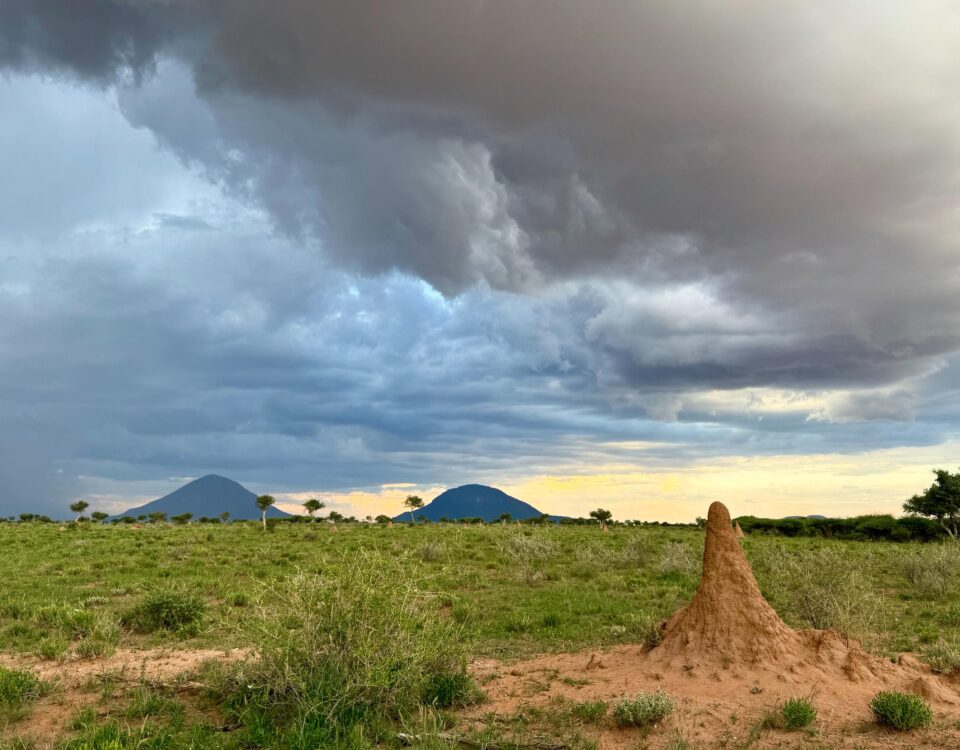Photography tips – A dream destination
June 23, 2015TNN goes mountain biking with CYMOT
June 25, 2015Compiled by Annabelle Venter | Photograph Paul van Schalkwyk
Clear blue skies and warm daytime temperatures – this is an ideal time to travel in Namibia.
WINTERTIME
We’re back on wintertime, which is GMT +1 in Namibia. It means that we have daylight earlier in the morning, already before office hours, but less at the end of the day as the sun sets around 17h30 (see table). The Zambezi region remains on GMT +2 all year round.
This year we experienced an unusually late rainy season, but despite rather low rainfall figures we still have loads of green grass covering the central highlands even now, as winter approaches. Areas further south have not been so lucky, while Etosha has had late rains in places.
Mornings and nights can be very chilly in June and especially in July, our coldest month, and we all look for a spot in the sun as the day progresses. Clear skies during winter add to the night-time drop in temperatures, so don’t forget to wrap up warmly after dark.
Winter at the coast is full of surprises. If it isn‘t cold and misty, strong easterly winds may be blowing from the interior with warm to hot and sunny days in their wake. Bring some summer clothes and your swimsuit – just in case.
MAX/MIN
TEMPERATURES (CELSIUS)
Month: June July Aug
Windhoek 7/20 6/20 9/23
Swakopmund 9/23 8/21 8/20
Zambezi 6/27 6/27 9/30
Etosha 7/25 7/25 9/29
SUNRISE & SUNSET
WINDHOEK
Times: Sunrise Sunset
5 June 06h29 17h15
15 July 06h31 17h24
15 August 06h16 17h36
With no chance of rain, winter is a great time of year to travel and it’s particularly good for game viewing in Etosha, our premier game park. In a dry year like this, animals are forced to visit waterholes earlier than usual. The elephants will have returned to the vicinity of the waterholes by now and will visit them every day. A shortage of natural savannah grass could mean, however, that difficult times are in store.
In the far south-western corner of Namibia you may experience winter rainfalls as a result of South Atlantic cold fronts moving in across neighbouring South Africa. You might even be lucky enough to witness a little snowfall in the south – very rare but amazing to experience. For the rest of the country you can look forward to perfect travelling weather, with midday temperatures in the northern parts warm enough for a swim!
AVERAGE NAMIBIAN
RAINFALLS
Months: March April May
Windhoek 81 mm 38 mm 6 mm
NorthEaster 96 mm 37 mm 2 mm
Coastal areas 8 mm 2 mm 2 mm
MOON PHASES
It’s wonderful to go camping in Namibia just before full moon and enjoy the maximum amount of natural light in the early part of the night. If you ever said you’ll do something only once in a ‘blue moon’ then your chance arrives in July!
Full Moon New Moon
2 June 16 June
2 July 16 July
31 July 14 August
29 August
Blue Moon
31 July
Second full moon in the same calendar month
Winter Solstice
21 June
HEALTH PRECAUTIONS
- After late rains the risk of malaria still exists. If you travel north of Windhoek, add malaria prophylaxis to your medication list and spray/cover yourself after dark.
- Sunscreen: with no clouds and beautiful sunny days, sunburn is a reality in winter as well.
- Hydration: drink enough fluids throughout the day. It’s a very dry time of year and humidity is extremely low.
This article was first published in the Winter 2015 issue of Travel News Namibia.

